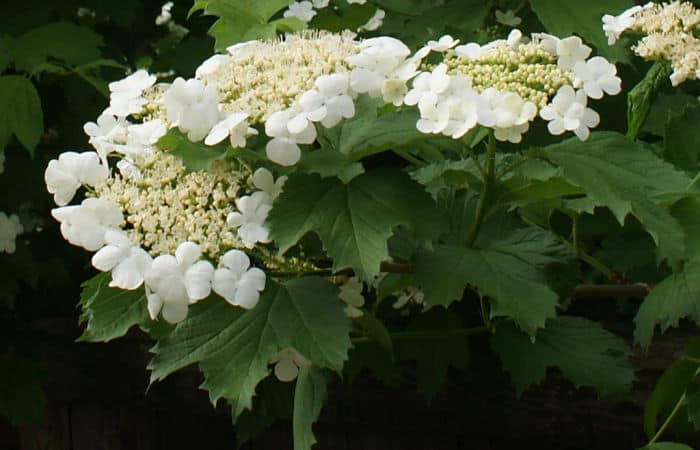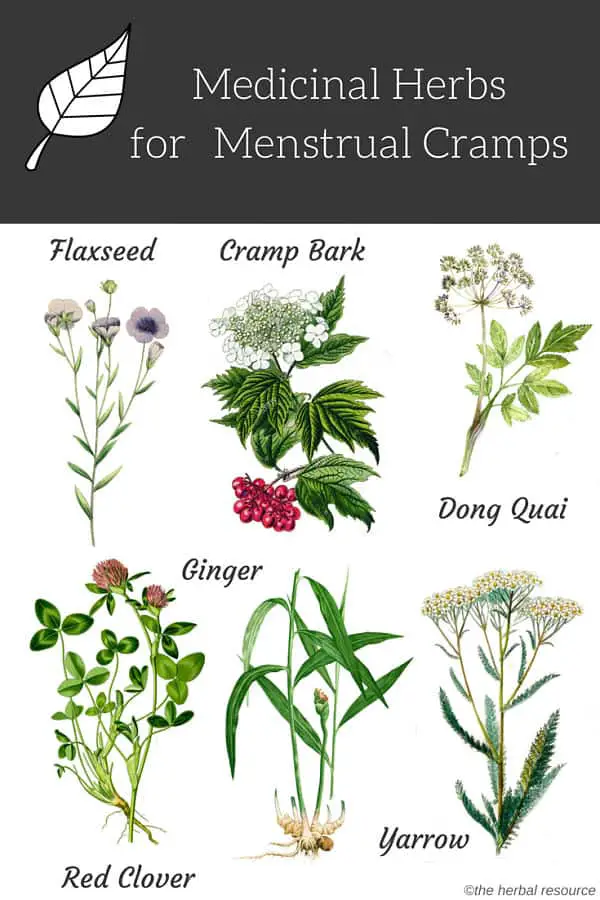Women have been using herbal remedies to reduce the many symptoms associated with menstruation, including menstrual cramps, for hundreds, if not thousands, of years.
There are many factors that act to either worsen or reduce menstrual cramps including stress, diet, and associated health problems, all of which may vary from month to month.
Herbal remedies for the treatment of menstrual cramps can act in a variety of ways. Some may work to balance hormone levels, as there is a rise of progesterone prior to menstruation and then a sharp drop in progesterone and estrogen during menstruation.
Some can be taken as uterine tonics, which work to strengthen and maintain a healthy uterus. Others are anti-spasmodic herbs, which help prevent and ease cramps.
There are also nervine herbs, which have an overall relaxing effect on the nervous system.
Most herbal remedies for menstrual cramps are most effective if taken prior to the onset and during menstruation. It often takes at least three menstrual cycles before the effects of some herbal treatments can be realized.

Medicinal Herbs Used for Menstrual Cramps
Squaw Vine (Mitchella repens)
This medicinal herb is reported to have been a common cure among Cherokee women for menstrual cramps. It has anti-spasmodic properties.
Flaxseed (Linum usitatissimum)
Lignans contained in flaxseed act in the same manner as estrogen and may act to modulate hormone levels, which helps alleviate symptoms of PMS as well as menopause.
Cramp Bark (Viburnum opulus)
Cramp bark has anti-spasmodic properties and is nervine which makes it an effective natural treatment for muscle cramps, including menstrual cramps.
The herb contains substances called methyl salicylates, known to have analgesic (pain-relieving) and anti-inflammatory effects.
Ginger (Zingiber officinale)
Ginger contains substances that are thought to fight inflammation and reduce painful spasms in the uterus.
This popular kitchen herb has been shown to reduce the production of prostaglandins, hormone-like chemicals that are a contributing factor in causing period pain and inflammation.
In a double-blind study from 2009, 150 women starting their periods were given either 250 mg. of ginger powder, 400 mg. of ibuprofen or 250 mg. of mefenamic acid, both nonsteroidal anti-inflammatory drug (NSAID), four times per day for three days.
The study results showed that ginger seemed to be just as effective when compared to the conventional pain relief medication (NSAID).
Black Haw (Viburnum prunifolium)
This spreading shrub is closely related to honeysuckle and elderberry.
It contains the compounds aesculetin and scopoletin which are known to relieve muscle spasms, thus relaxing the uterus.
Meadowsweet (Filipendula ulmaria)
Meadowsweet contains salicin that can provide relief of pain from menstrual cramps.
Dong Quai (Angelica sinensis)
The root of this herb is widely used in Chinese medicine and is also known as Chinese angelica. It acts as both an anti-spasmodic and anti-inflammatory and has also been used to treat fatigue.
Raspberry (Rubus idaeus)
Taken as a tea, raspberry leaf is frequently used to relax the uterus. It is sometimes taken during pregnancy to soothe uterine irritability.
Kava Kava (Piper methysticum)
The antispasmodic effects of kava make it a natural treatment for menstrual cramps. It also contains two chemicals considered to be as effective in relieving pain as aspirin.
Some Europeans take kava kava for it anti-anxiety effects, which may also help reduce cramping.
Red Clover (Trifolium pratense)
Clover is rich in phytoestrogens that, like lignans in flaxseed, act much like female estrogen. Red clover may be an effective herbal treatment for menstrual cramps by balancing hormone levels during menstruation.
Yarrow (Achillea millefolium)
Yarrow is another herbal remedy with anti-spasmodic constituents for the treatment of menstrual cramps. It is also said to be a uterine tonic, improving blood flow and toning the uterus.
Chinese Peony (Paeonia lactiflora)
This common ornamental plant has been used for centuries as an anti-spasmodic. It is a traditional Chinese herb for the treatment of spasm, muscle cramps, irregular menstruation, and menstrual cramps.
Other natural herbs that have been used to treat menstrual cramps.
- Bilberry (Vaccinium myrtillus)
- Chaste Tree Berry (Vitex agnus-castus)
- Chinese Motherwort (Leonurus Artemisia)
- Cinnamon (Cinnamomum verum)
- Evening Primrose (Oenothera biennis)
- False Unicorn (Chamaelirium luteum)
- Feverfew (Tanacetum parthenium)
- Garlic (Allium sativum)
- Hops (Humulus lupulus)
- Strawberry (Fragaria, various species)
- Thyme (Thymus vulgaris)
- Night Blooming Cereus (Selenicereus grandiflorus)
- Lavender (Lavandula angustifolia)
- Calendula (Calendula officinalis)
- Vervain (Verbena officinalis)
- Wormwood (Artemisia absinthium)
- Blessed Thistle (Cnicus benedictus)
- Cumin (Cuminum cyminum)
- Pasque Flower (Pulsatilla vulgaris)

The Use of Herbal Remedies for the Treatment of Menstrual Cramps
Reducing stress and relaxing can help to reduce menstrual cramps. There are a number of herbal treatments that can be taken to help relaxation.
Chamomile, lavender, marjoram, ginger, and/or clary sage can be added to bath water or massage oil. Herbal teas with sedative properties include wild yam, peppermint, chamomile, hops, valerian, ginger, skullcap, motherwort and California poppy.
Thordur Sturluson
Latest posts by Thordur Sturluson (see all)
- What is the Difference Between Hemp and Marijuana? - June 3, 2019
Leave a Reply